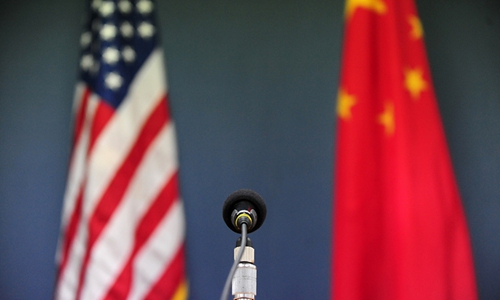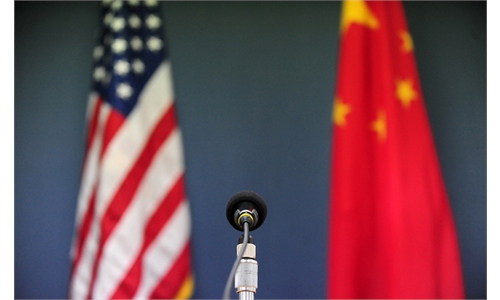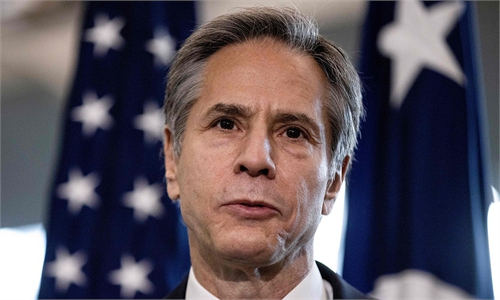US crackdown on Chinese firms dims hopes for future trade engagement
Dialogue still needed, but ‘it’s all about strength’: expert

China and the US Photo:VCG
In a move apparently timed to strike a tough tone ahead of a key dialogue on Thursday, the US government took a couple of moves against Chinese telecommunication companies, continuing a Trump-era crackdown on Chinese firms that has drawn ire in Beijing.The US Federal Communications Commission (FCC) announced on Wednesday that it has launched proceedings to revoke authorization for two Chinese telecom firms - China Unicom Americas and Pacific Networks - to provide telecom services in the US, saying the actions were to protect the US telecom infrastructure from "potential security threats."
Also on Wednesday, US Secretary of Commerce Gina Raimondo said that the US Commerce Department has served subpoenas on multiple Chinese companies that provide information and communications technology and services in the US, adding the move was intended to conduct a review and prepare for actions to protect "US national security."
The US government, under President Joe Biden, has already shown its intention to continue a crackdown on Chinese companies launched by his predecessor Donald Trump, by blacklisting more Chinese firms.
On Friday, the FCC also designated five Chinese companies, including Huawei Technologies Co and ZTE Corp, as threats to national security.
The latest actions come as senior Chinese and US officials were set to meet for the first time in the US state of Alaska since Biden took office, leading Chinese officials and analysts to accuse the US of bad-faith tactics.
In Beijing, a spokesperson for the Foreign Ministry harshly criticized the US crackdowns on Thursday, calling the moves "wrong" and urging the US to stop abusing its state power in cracking down on Chinese firms baselessly.
"China will continue to take necessary measures to safeguard the legitimate rights and interests of Chinese companies," Zhao Lijian, the spokesperson, said at a routine press conference.
The companies had not responded to the US' actions as of press time on Thursday. Given the limited market operations by Chinese telecom companies in the US, the moves are unlikely to deal major blows to them. But in the face of an intensifying US crackdown, a rising number of Chinese firms are reportedly seeking to sue the US government over its actions.
"These are consistent suppression tactics used by the US to make an empty show of strength ahead of the negotiations," Gao Lingyun, an expert at the Chinese Academy of Social Sciences in Beijing, told the Global Times on Thursday, adding that both sides were meeting to exchange stances but no concrete result was expected.
In addition to the crackdown against Chinese firms, the US government also imposed sanctions on two dozen officials on the Chinese mainland and in Hong Kong on the eve of the meeting in Alaska.
The two-day meeting will mostly focus on diplomatic and security issues rather than on trade and technology, despite a lingering, damaging trade war and technology race, according to officials and analysts.
Some, particularly in the Chinese and US business communities, expected that economic and trade talks could follow after the high-level meeting and the Biden administration forms its trade team.
On Wednesday, the US Senate voted to confirm Katherine Tai, a longtime US trade lawyer of Chinese heritage, as the new US Trade Representative (USTR), a crucial role in the China-US trade negotiations under former US president Donald Trump.
However, under Biden, the role of the USTR in trade negotiations might be diminished as the new administration seeks a more coordinated approach, not just internally but with allies, analysts said.
Recent crackdowns against Chinese companies show that the Biden administration is not reversing Trump's tactics, and potential talks to resolve disagreements could be much more complicated, they added.
"Any interactions are better than none. But there are so many complicated issues that a compromise in any particular area cannot help to resolve the problems. We have reached a stage where neither side can persuade the other, and ultimately it's all about strength," Huo Jianguo, a vice president of the China Society for World Trade Organization Studies, told the Global Times on Thursday.




